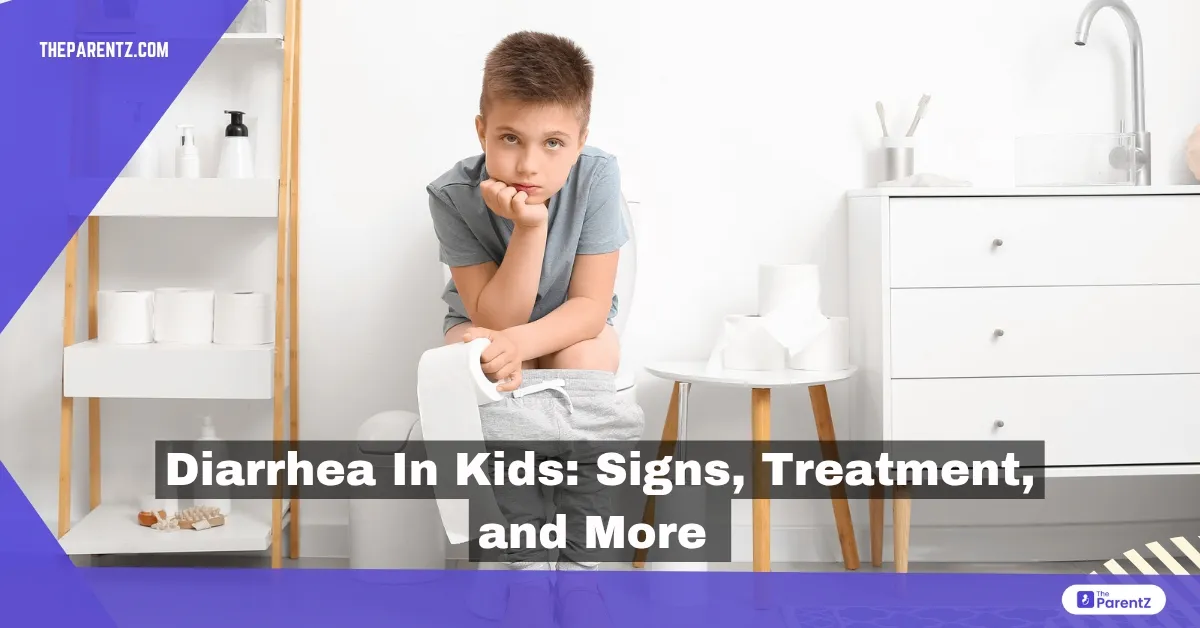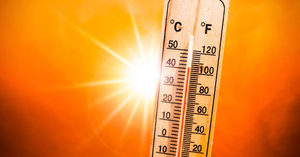Diarrhea is a common problem in kids and is primarily caused by infections, food intolerances, and digestive issues. Though occasional loose stools are normal, frequent watery stools eventually lead to dehydration and other concerns.
According to the World Health Organization (WHO), diarrhea is one of the leading causes of illness in children under five, accounting for about 525,000 deaths globally each year. Yes, that’s a whopping number.
Read below this article to explore the signs, causes, and treatments of diarrhea in kids.
Signs of Diarrhea in Kids
Diarrhea is usually defined as three or more loose or watery stools in a day. Other common symptoms that may accompany diarrhea include:
- Frequent watery stools and may contain mucus or blood in severe cases
- Abdominal pain or cramping
- Nausea or vomiting
- Fever
- Loss of appetite
- Irritability or tiredness
Signs of Dehydration
Dehydration is the most concerning sign of diarrhea, especially in younger kids. Here are the common signs of dehydration in kids you can look for:
- Dry mouth and lips
- Decreased urination
- Sunken eyes or cheeks
- Crying without tears
- Lethargy or unusual drowsiness
However, if your child shows severe dehydration symptoms, including extreme fatigue, a sunken soft spot in infants, and difficulty waking up, consult a healthcare provider immediately.
5 Common Causes of Diarrhea in Kids
Here are some of the potential causes behind diarrhea in kids.
Viral Infections
Viruses such as rotavirus and norovirus are the leading causes of diarrhea in children. In fact, rotavirus alone is responsible for about 40 percent of hospitalizations due to diarrhea in children under five, according to the CDC.
Bacterial Infections
Bacteria such as Salmonella, E. coli, and Shigella can also cause foodborne diarrhea, which often leads to severe abdominal cramps, fever, and bloody stools.
Food Intolerances or Allergies
Some children, however, may develop diarrhea due to lactose intolerance or food allergies, including gluten intolerance or celiac disease.
Antibiotic Use
Certain antibiotics may also interfere with the balance of healthy gut bacteria, which ultimately results in antibiotic-related diarrhea.
Poor Hygiene and Contaminated Food or Water
Last but not least, drinking unclean water or consuming improperly cooked food may also introduce harmful bacteria and parasites into the digestive system, leading to diarrhea.
How to Treat Diarrhea in Kids?
Most cases of diarrhea resolve on their own within a few days. Despite this, it is important to ensure proper care to prevent dehydration and promote recovery. Here are a few helpful tips to treat diarrhea in kids.
Keep Your Child Hydrated
Offering oral rehydration solutions (ORS) such as Pedialyte can help replace lost fluids and electrolytes. However, avoid fruit juices, soft drinks, or sports drinks, as they can worsen diarrhea. For infants, breastfeeding or formula feeding should continue.
Follow a Gentle Diet
Easily digestible foods such as bananas, rice, applesauce, and toast (BRAT diet), along with plain crackers or boiled potatoes, can significantly help treat diarrhea in kids. However, make sure to avoid greasy, spicy, or sugary foods that can irritate the stomach.
Give probiotics.
Did you know that probiotics help restore gut bacteria and reduce the duration of diarrhea? Yes, according to studies, probiotic strains such as Lactobacillus rhamnosus GG can shorten diarrhea by up to one day.
Medication
Antibiotics may be needed if diarrhea is caused by a bacterial infection, as prescribed by the doctor. However, note that anti-diarrheal medications are not recommended for young children unless prescribed by a doctor.
When to See a Doctor?
Here are some signs that may indicate you need to seek medical help for your child if he
- Has severe dehydration symptoms (dry mouth, no urine output, lethargy)
- Has a high fever (above 102°F or 39°C)
- Has bloody or black stools
- Has diarrhea lasting more than 7 days
Final Thoughts
Diarrhea is a common but manageable condition in children. While most cases resolve on their own, staying hydrated, offering a bland diet, and maintaining hygiene are key to recovery. In severe cases, seeking medical attention promptly can prevent complications like dehydration.








Be the first one to comment on this story.